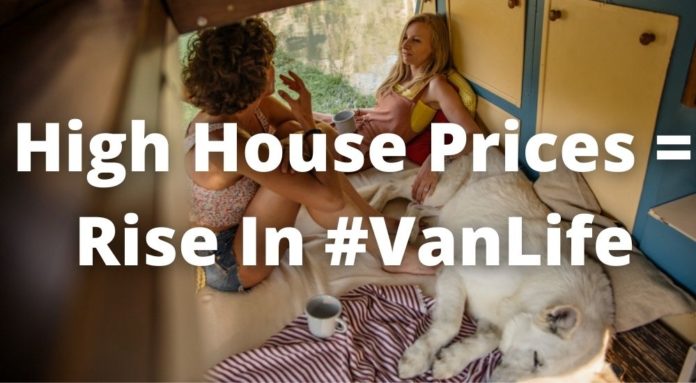As real estate prices continue to rise, a younger generation of would-be homeowners is feeling left out. The average cost of a home in the U.S. skyrocketed by almost 20 percent last year, the third-highest monthly increase in the past 35 years. This unprecedented price hike has led some millennials to seek more creative methods of hauling themselves up the property ladder and ask themselves: “If I won’t ever be able to afford a house, is it a good idea to buy a car?” This pressing question has found many to search for an online car dealer to find an answer.
What was once a Saturday Night Night Live punchline is now an unfortunate reality as more young Americans start to come around to the idea of living in a van down by the river. Still, there are some advantages to this new breed of mobile home. Vehicle-based residences are only more affordable than their brick-and-mortar counterparts but offer a great degree of freedom and minimal upkeep.
“As a millennial, I’ve become accustomed to the fact that I’ll never actually own anything, I mean, aside from my insurmountable student debt,” says Becky Saunders, who recently moved into a spacious 1-bedroom Ford Windstar she found on Craigslist. “It’s a harsh fact to face up to, but I guess it’s just the price our generation has to pay for getting to enjoy the Spice Girls in their prime.”
An IT specialist with two advanced degrees and excellent credit, Saunders thought she would be a prime candidate for a home mortgage; then came her interview. “The loan specialist seemed very intrigued by the house I was scoping out, so much so that when I called the seller back later that afternoon, I found out that my bank had actually outbid me by $50,000,” she says. “It was then I realized that the system was a bit stacked against the average person, and I started browsing the internet for used vans.”
In avoiding the harsh realities of a monthly mortgage payment, these pseudo-homeowners might think they’ve beaten the system, but these vehicles-turned-domiciles do come with some expenses of their own. Rising gas prices mean that drivers now spend almost as much filling up the tanks as the average homeowner spends on a monthly mortgage payment, taking some of the shine off vehicle-based living.
Still, this nomadic lifestyle does come with its advantages. Traditionally the home buying process is fraught with potentially life-altering decisions as buyers lock themselves into not only a home, but a new set of neighbors, school districts, local amenities, and culture. This isn’t the case when it comes to these mobile residences, which can be relocated as fast as you can say “emergency brake.”
“Jackson was devastated when he didn’t make JV basketball, but that afternoon we simply drove around the area scoping out playgrounds with the wimpiest looking kids, and I had him registered in that district by the next morning,” says Jan Beck. “Now he’s the starting point guard, and all it cost us was a sense of safety and stability.”
Unlike many of her fellow vehicle residents, Beck was actually a homeowner up until late last year, when the red-hot market convinced her to put her modest two-bedroom starter home on the market. Purchased shortly before the birth of her first child for just $180,000, Beck was able to unload the house in a bidding war that saw her family net a cool $230,000. “I was really surprised at what we got for it, especially considering that it’s located two blocks from a slaughterhouse, is built on a former Superfund site, and was actively on fire during the open house,” she says.
It’s not just aspiring homeowners who are shacking up in their cars. Historically high rents have drawn a younger crowd to the trend, who see their rolling residences as a fair trade-off. “Sure, I can’t really sleep past sunrise, and it doesn’t have a bathroom in the traditional sense, but I don’t have to deal with landlords anymore, so it’s really a win-win,” says Tyler Morgan, reclining with a drink on the deck/roof of his Hyundai Elantra.













